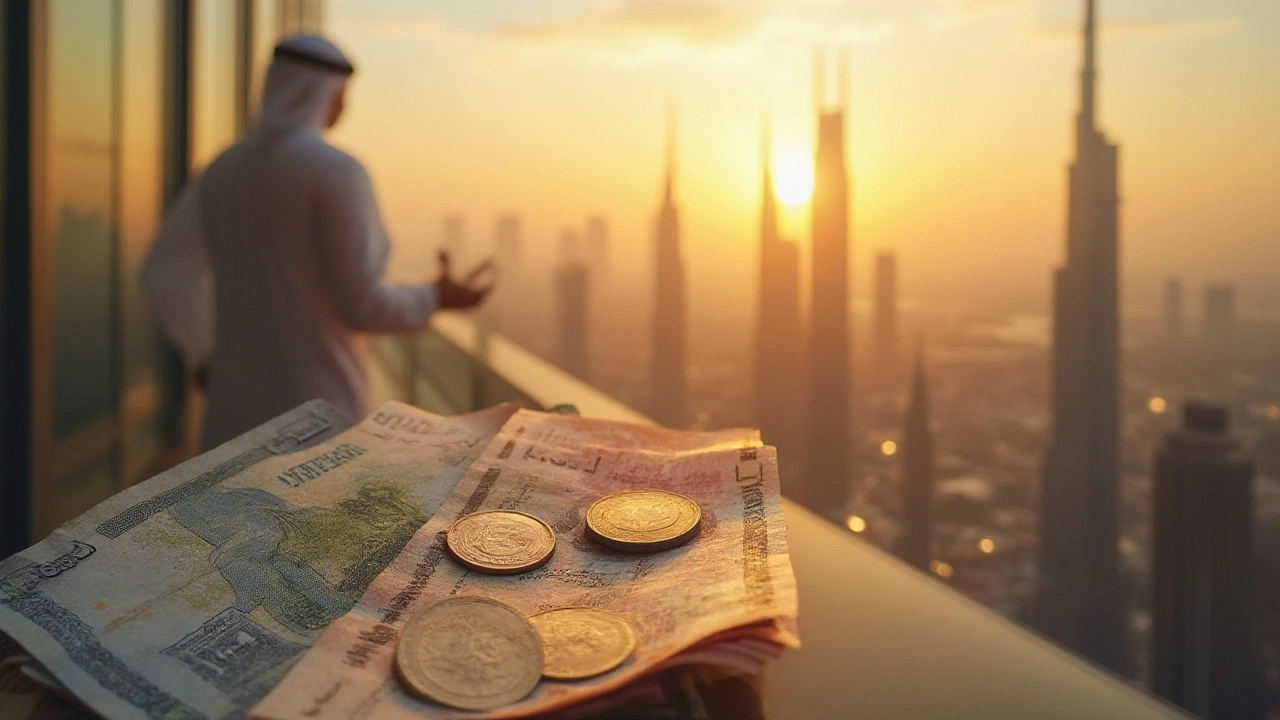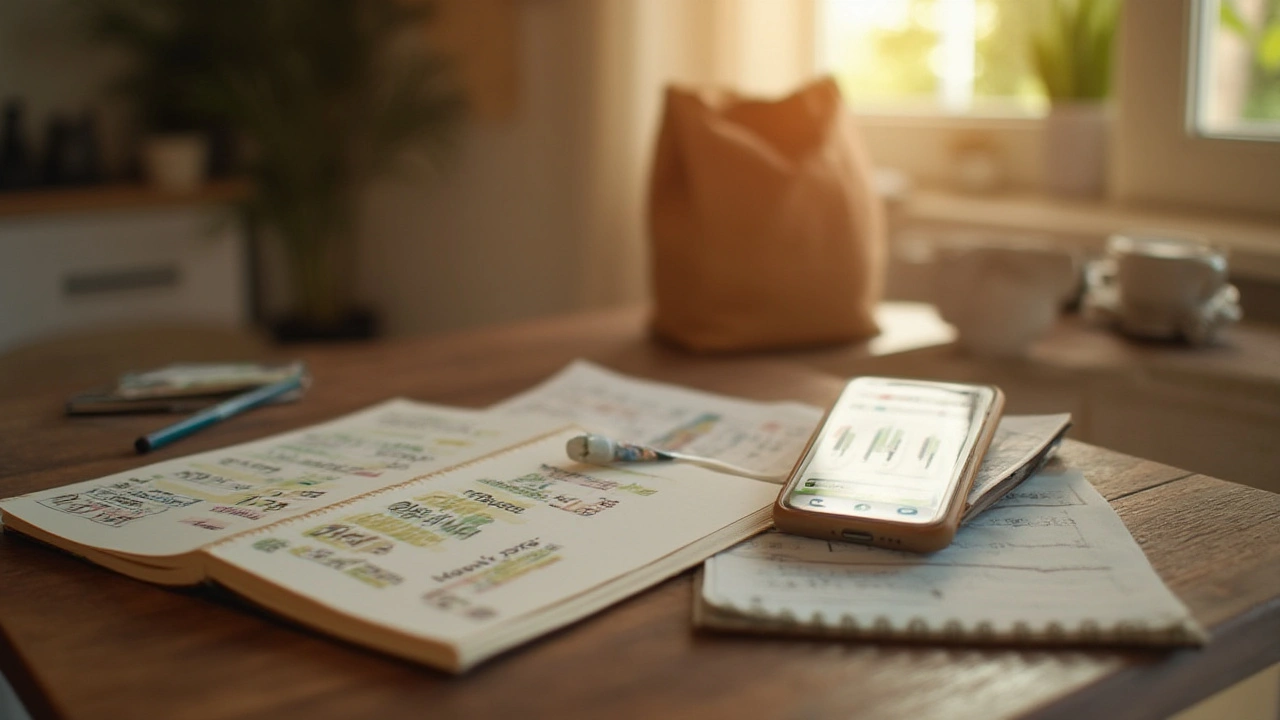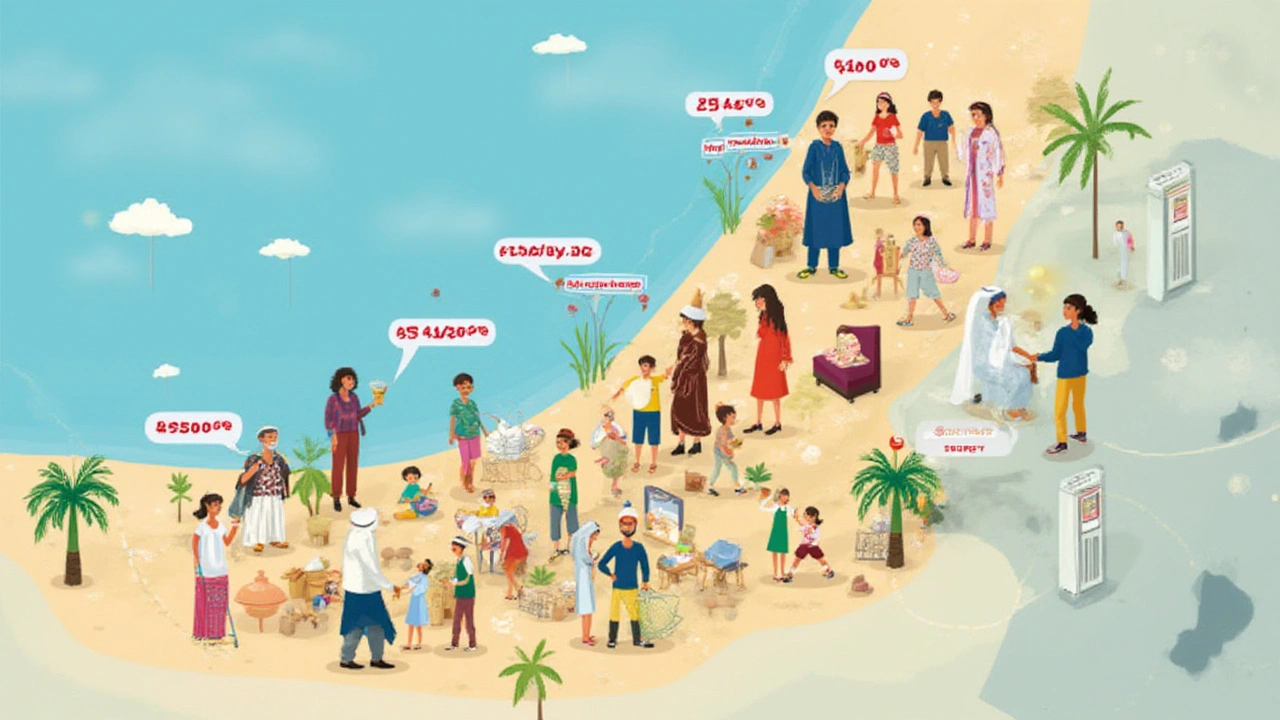
Right off the bat, Dubai’s glam reputation usually has people whispering about glittering skyscrapers, gold-plated everything, and wild shopping sprees. But here’s the thing—most folks living alone in Dubai aren’t splurging on private islands or fancy cars. Normal people just want to know if they can afford a reasonable life and still stash away a bit at the end of the month. So let’s strip away the myths, run through real numbers, and talk about what a single person actually needs per month in this wild, sun-baked city.
Understanding Rent: The Make-or-Break Expense in Dubai
Nothing burns a bigger hole in your bank account in Dubai than rent—it’s practically a sport here, trying to pin down a decent deal. The city has tons of options, but rent varies like crazy depending on location, building age, whether you’re sharing, and even luck. If you just want your own studio far from downtown, it might set you back around 3,500 AED a month. Want to be closer to the heart of the city, or even snag a one-bedroom flat in Dubai Marina or Downtown? Gear up—prices there usually shoot past 7,000 AED and can hit 9,000 AED for modern, fully-loaded units.
Sharers, you’re in luck—a room in a nice shared apartment can go for anywhere from 1,500 to 3,500 AED, including bills. And yes, thousands of young professionals and newcomers opt for this option. But watch out for weird arrangements and make sure your lease is legit; subletting can be a gray area. Electricity, water (what’s called DEWA), and internet usually add another 500–700 AED for a modest pad. In summer, when the AC becomes your best friend (unless you want to melt), expect those bills to jump even higher, sometimes over 1,000 AED if you like it freezing cold. Landlords sometimes ask for a year’s rent upfront, but most now accept post-dated checks split over four or even twelve payments, thanks to recent tenant-friendly laws.
Food and Groceries: From Supermarkets to Street Shawarma
Let’s talk food, because you have to eat—unless you plan to run on desert vibes alone. Grocery bills for just one person playing it pretty basic (think cooking at home, buying standard brands, getting fruits, veggies, some meat or chicken, and not diving into artisanal cheeses and imported salsas every night) usually ring up at around 900–1,400 AED per month. Now, if you like dining out, even at cheap places, Dubai has it all, from dirt-cheap cafeterias in Deira to sushi joints in JBR.
Eating local and fast (shawarma, biryani, or curry) at small restaurants can cost 20–40 AED per meal. Regular café lunches or food courts hover around 40–60 AED—pretty manageable, right? But just remember, brunches and fine dining are a slippery slope; a weekend out, especially in the posh areas like Dubai Mall or Palm Jumeirah, can easily top 200 AED per person. Ordering on delivery apps (Talabat, Deliveroo, Zomato) is tempting and is a budget-killer if it’s too frequent. Here’s a tip: local supermarkets have daily deals and discounted evenings—if you swing by after 8 pm, you’ll often find bakery items, fresh produce, and cooked food on major markdowns.

Transport: Metro, Taxis, and Surviving Dubai’s Traffic
Dubai’s metro is probably the cleanest and easiest public transport around the Middle East, and using it can save you serious cash. A monthly Nol card for unlimited rides starts at about 350 AED for regular cars, or close to 700 AED for Gold Class. If you live near a metro station and don’t mind walking, you can almost skip taxis and Ubers, which are fast but pricey—think 20 AED for the shortest ride and 60–70 AED for medium distances.
Lots of single folks use public buses, which are air conditioned (phew!) and cost far less; a short hop can be as little as 3 AED. But Dubai isn’t exactly designed for walkers, so having a car is still common. Leasing a small car is about 1,200–1,500 AED a month, plus insurance (around 200 AED/month for basic), petrol (another 100–250 AED monthly, depending on commute), and parking fees if your building doesn’t provide a spot. If you feel brave, rent a scooter or e-bike for zipping around neighborhoods and hitting short commutes to work or the gym. Those are popping up everywhere and are super practical in cooler weather.
By the way, traffic can snarl even the calmest person, especially on Sheikh Zayed Road at rush hour. Plan your schedule to dodge the gridlock—that way, you also avoid wasting money on taxi meters creeping up as you sit bumper to bumper. Oh, and if you’re the type to take late-night rides, taxis after midnight are slightly more expensive. Quick trick: split rides with friends or colleagues—it’s totally normal here and saves cash.
Utilities, Internet, and Essential Subscriptions
Utilities are trickier than you’d imagine in Dubai—it’s not just about electricity and water. Internet, TV (if you even bother), mobile phone, gym memberships, and now streaming services, all pile up.
For home internet, Etisalat and du are your two big choices. Packages start at around 300 AED a month for decent speeds—that's fine for Netflix, calls home, and remote work. Most apartments come “chiller-free” (meaning the landlord pays for building AC), but if not, air conditioning can be a major chunk of your DEWA bill. Your mobile phone will need a prepaid SIM (average top-ups 80–150 AED/month), though post-paid plans with data go for about 150–300 AED. Netflix and Spotify are around 45–60 AED each. Mix in a modest gym (100–250 AED), and if you hit classes, yoga or Pilates, tack on another 50–100 AED weekly.
Some folks love to mail things home—expect to pay a premium for postal services. And almost everyone uses WhatsApp and Zoom for family catch-ups since international calls are stupidly expensive without packages. Outside the basics, lots of expats prioritize wellness: health insurance is often covered by employers, but if it’s not, basic private policies for one person are around 500–800 AED monthly for healthy adults under 40.

Hidden Costs, Social Life, and Surprising Extras
The biggest surprises in Dubai aren’t always the obvious stuff. Social life can eat up your cash before you blink—nights out start cheap but escalate fast. For example, a cinema ticket is 52 AED, popcorn and drink another 35 AED, and you’re suddenly at 87 AED for two hours of fun. Alcohol is expensive (not sold in supermarkets, only in licensed bars/hotels), with a single cocktail or beer running 60–100 AED. Weekly markets, beach days, or art shows? Those add up too, from 20 AED entry to hundreds for tickets to big gigs or sporting events.
Dubai spoils residents with endless sales—especially at malls during Dubai Shopping Festival or season clearance events. If you’re not careful chasing deals, your “saved” dirhams turn into new shoes every single payday. Tip: budget a specific “fun fund” each month and stick to it. Lots of expats get by with what’s called the 50-30-20 rule: 50% essentials (rent, food), 30% wants, and 20% savings. It actually works if you track every fil (that’s Dubai’s version of cents).
Now—don’t forget the one-offs and ‘extras’ nobody warns you about. Visas and ID renewals, the occasional home appliance that randomly dies, cleaning help (pretty common, 25–40 AED per hour), and gifts for family back home. Sometimes you get stung for a building maintenance fee (yes, even as a renter, check your contract). And you haven’t really lived in Dubai until you’ve paid a fine for a random parking ticket or illegal right turn—those are 200–400 AED a pop.
Here’s a ballpark of total minimum monthly spend for a careful single person (as of July 2025):
- Rent (studio, not central): 3,500–4,500 AED
- Utilities and internet: 600–900 AED
- Groceries: 1,000–1,400 AED
- Transport (public, modest): 350–450 AED
- Phone/streaming: 200–300 AED
- Social/fun/misc.: 500–1,000 AED
That all adds up to around 6,500–8,500 AED per month if you keep it simple. Live large? Easily double it. So, can a single person enjoy life in Dubai without going broke? Definitely—but you need to be smart, skip the constant brunch temptations, and lock in a good rent deal early. Monthly expenses Dubai might sound scary, but once you’re plugged into the rhythm of the city, living here turns into a practical balancing act with plenty of sunshine and surprises.
Dubai Escort